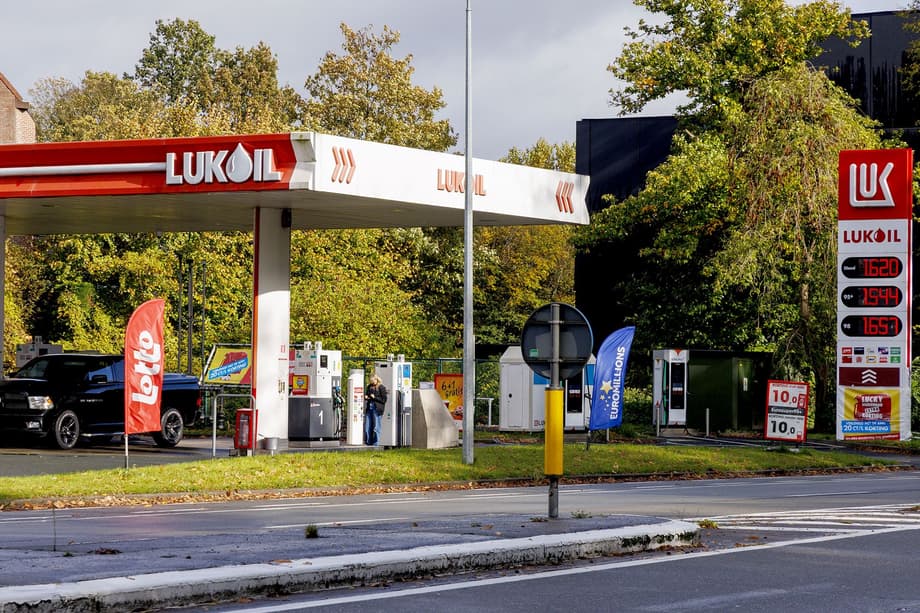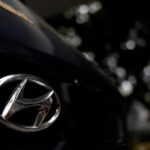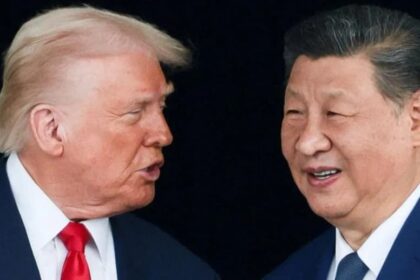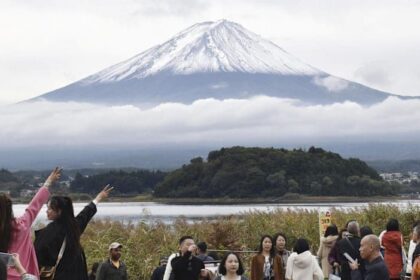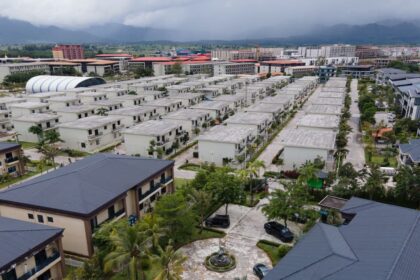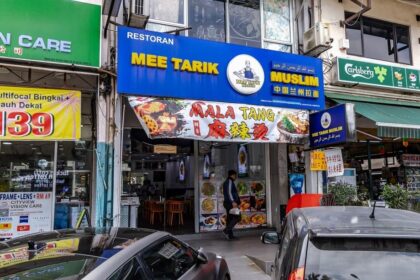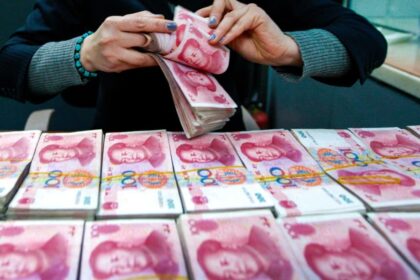Why Lukoil is unloading its global portfolio
Russia’s second largest oil producer, Lukoil, has accepted an offer from energy trader Gunvor to acquire Lukoil International GmbH, the subsidiary that holds the company’s overseas assets. The move follows new US sanctions and a short window for companies to wind down transactions with Lukoil and fellow Russian producer Rosneft. The deal, once cleared by regulators, would transfer a broad mix of refineries, oil fields, terminals and retail fuel networks from one of the world’s biggest private oil companies to one of the world’s top independent commodity traders.
- Why Lukoil is unloading its global portfolio
- What is on the block
- How sanctions shaped the deal
- Who is Gunvor and why it is buying
- What it means for host countries and customers
- Financial stakes and valuation questions
- Legal and regulatory hurdles ahead
- Market reaction and energy trade dynamics
- What happens next
- The Bottom Line
The company described the decision as a response to restrictive measures and the tightening of compliance risks across multiple jurisdictions. The sale is being arranged under a US Treasury wind down license that allows ongoing operations for a limited period while parties tidy up contracts and banking relationships. Lukoil has committed not to negotiate with other potential buyers, and the transaction requires permission from the US Treasury’s Office of Foreign Assets Control, along with local approvals in countries where the assets operate.
Executives and market participants see the agreement as the most consequential corporate action by a Russian energy group since sweeping Western sanctions tied to the war in Ukraine reshaped global oil trade. The agreement would accelerate a shift already underway, where Western aligned buyers, traders and state owned companies have taken a larger role in handling assets and supply chains once dominated by Russian champions. Gunvor confirmed it is in talks with Lukoil regarding the acquisition.
In its statement, the company drew a direct link between the sale and the policy environment. Lukoil said the portfolio transfer was driven by international restrictions affecting the firm and its subsidiaries.
In a company statement, Lukoil said the sale was due to “restrictive measures of some states introduced against the Company and its subsidiaries”.
A rare step for a Russian oil major under sanctions
Large Russian energy companies have adjusted operations since 2022 as buyers, insurers and banks in Europe and North America distanced themselves from Russian crude and products. Selling an entire international portfolio is a different order of magnitude. It removes a layer of sanctions risk for Lukoil while setting up Gunvor to manage the assets under a compliance framework acceptable to Western authorities and host countries.
What is on the block
Lukoil’s international business spans more than 30 countries and includes upstream and downstream operations. The most prominent upstream holding is a 75 percent stake in Iraq’s West Qurna 2 oil field, one of the largest fields in the world. The project has been a key growth engine for Lukoil’s production outside Russia and a pillar of its international strategy.
Output at West Qurna 2 reached around 480,000 barrels per day in April, according to industry reporting, with further development phases planned by the operator and the Iraqi government. Any change of ownership in such a project typically requires approval by the host state, and coordination with partners, contractors and offtakers to keep production and exports steady.
In Europe, Lukoil owns the Lukoil Neftohim Burgas refinery in Bulgaria, with a capacity of about 190,000 barrels per day, the largest refinery in the Balkans. The company also owns the Petrotel refinery in Romania. These plants supply regional markets with gasoline, diesel and petrochemical feedstocks, and they anchor networks of storage, pipelines and fuel distribution. A sale would involve transferring not just the physical assets, but also complex webbing of supply agreements, maintenance contracts and environmental obligations.
Beyond refining, Lukoil supplies crude to buyers in Central Europe and Turkey. Supply has included deliveries to Hungary and Slovakia, and barrels destined for Turkey’s STAR refinery, which is owned by Azerbaijan’s state oil company SOCAR and relies heavily on Russian grades. Lukoil also holds stakes in oil terminals and retail fuel chains across parts of Europe, which will likely move to Gunvor if the deal closes.
Outside Europe and the Middle East, Lukoil’s overseas holdings include upstream and downstream projects in Central Asia, Africa and Latin America. The portfolio includes a 25 percent stake in the Marine XII block offshore Congo and concessions in Egypt, along with exploration and development interests in other basins. The breadth of jurisdictions underscores how many national authorities will need to sign off on the transfer and how varied the regulatory requirements will be from country to country.
How sanctions shaped the deal
The US Treasury issued a time limited license allowing companies to wind down transactions with Lukoil and Rosneft until November 21. Wind down licenses are temporary legal allowances that permit companies to close out contracts, receive payments for past deliveries, and reconfigure operations without breaching sanctions rules. That window is short in oil industry terms, given the number of contracts tied to each refinery, field and storage site.
Lukoil has said the parties will seek an extension of the current license if needed, and the deal itself is contingent on OFAC permission for the buyer. That is standard for asset transfers involving sanctioned entities. OFAC permissions can set the terms under which banks process payments, insurers underwrite risk, and shipping companies move cargo linked to the assets during the transition.
Why the wind down license matters to counterparties
For service providers and trading partners, the license clarifies what activity is allowed while the sale is arranged. It reduces the risk that banks or insurers will refuse to handle routine transactions tied to operations. Even so, many counterparties apply stricter internal policies than the letter of the license. That is one reason Lukoil is seeking to exit these assets quickly and why a buyer like Gunvor, with extensive compliance systems and relationships in Western financial markets, can maintain continuity.
Who is Gunvor and why it is buying
Gunvor Group is a major independent commodity trader based in Switzerland. It rose to prominence in the 2000s as a leading trader of Russian crude. One of its cofounders, Gennady Timchenko, sold his stake in 2014 after the US imposed sanctions over Russia’s annexation of Crimea. Since 2022, Gunvor has benefited from volatile oil and gas markets and higher margins in trading, and it has reinvested profits into energy infrastructure ranging from refineries and upstream assets to power generation and renewables.
For a trading house, owning physical assets can secure access to supply and create optionality. A refinery can run different crude slates and capture value through timing, blending and product placement. Storage tanks and terminals give flexibility to route cargo where prices are strongest. Retail networks can provide steady offtake and better insight into local demand. The prospective Lukoil portfolio would deepen Gunvor’s access to these advantages across multiple regions.
A trader’s shift toward physical assets
Trading houses long focused on moving barrels and molecules without owning plants or fields. That model has evolved. Since the start of the war in Ukraine, several traders have bought stakes in refineries or upstream projects. Physical assets create more stable cash flows and help traders manage risk when freight, insurance and financing become constrained. The Lukoil acquisition would fit that shift by adding scale and diversification to Gunvor’s asset base.
What it means for host countries and customers
A sale of West Qurna 2 will require sign off from Iraqi authorities and coordination with project partners. Iraq relies on the field for a material share of its exports. Any ownership change would be structured to avoid operational disruption, with careful planning around field services, procurement and export logistics through Basra.
In Bulgaria and Romania, refiners face strict environmental and safety rules, as well as customs and tax obligations. A new owner would need to maintain fuel supply to domestic markets, honor labor agreements, and keep investment plans aligned with national and European standards. Continuity in crude supply and product distribution will be a priority for local regulators.
For Central European customers, the central concern is steady deliveries of crude and refined products. Some contracts may be novated to the new owner. Others could be renegotiated under fresh compliance terms. Most large refiners and traders have prepared contingency plans over the past two years, which should help minimize surprises in scheduling and product availability.
Turkey’s STAR refinery, owned by SOCAR, has relied on Russian crude grades and has worked with multiple trading partners to secure feedstock. A change in ownership for Lukoil’s foreign operations could shift who arranges those flows, but the refinery’s need for reliable supply will remain the same. New commercial arrangements would likely be designed to keep cargo moving without gaps.
Financial stakes and valuation questions
Lukoil and Gunvor have not disclosed a price or a closing date. Sanctions driven sales are complex. Valuations often reflect regulatory risk, financing constraints and the cost of operating in multiple jurisdictions. That can push discounts higher than in normal market transactions. Analysts who track distressed and sanctions affected deals say prices can fall well below book value when buyers face compliance uncertainty and hurdles in arranging bank financing.
Estimates of the value of Lukoil’s foreign portfolio vary widely, partly because asset data is uneven across countries. The mix includes a giant oil field, two refineries, logistics assets and retail networks, plus stakes in upstream projects across Africa and other regions. The final price will depend on the precise asset perimeter, the treatment of working capital and inventories, and the regulatory conditions attached to the transfer.
Payment mechanics are another challenge. Funds need to move through banks willing to handle the transaction under OFAC permissions. Escrow accounts and staged payments are common in sanctions related sales. Both companies have indicated that they will seek extensions of US licenses to avoid operational interruptions while the transaction proceeds.
Legal and regulatory hurdles ahead
The transaction must clear OFAC, and likely other US and European agencies, before it can close. Each host country will review ownership changes under local oil and gas, competition and environmental laws. Some jurisdictions require formal notifications and approval periods before control can pass to a new owner. In certain cases, national oil companies or ministries have preemption rights or veto rights over transfers.
Labor and community considerations are also relevant. Refinery workforces and local suppliers expect continuity. Environmental liabilities transfer with assets, and remediation commitments must be honored. A buyer will often agree to specific investment and maintenance plans as part of securing governmental approvals, especially for strategic assets like refineries and large upstream fields.
Market reaction and energy trade dynamics
Oil prices have been driven primarily by OPEC plus policy, global demand and supply disruptions from conflicts, rather than by company level deal news. A change in ownership of existing assets usually has limited immediate price impact. The greater effect is on trade routes and margins. A trader that owns refineries and storage may route crude and products differently, pursue different hedging strategies, and optimize inventories to capture price spreads across regions.
Since 2022, traders including Gunvor, Vitol and Trafigura have expanded beyond pure merchant roles. Owning assets in strategic locations can counter shipping bottlenecks and tighten integration between sourcing, processing and sales. If this deal closes, it would mark a new stage in that shift, bringing one of the largest Russian connected overseas portfolios under the roof of a Western aligned trader that can operate within US and European compliance systems.
What happens next
The parties will work toward a binding agreement that sets the final asset perimeter, price adjustments, and the handover plan for staff and operations. Due diligence will focus on permits, environmental obligations, long term supply contracts and outstanding receivables and payables. For assets like West Qurna 2 and Burgas, detailed transition planning will be needed to ensure safe and continuous operations.
If approvals proceed on the expected timetable, the wind down license would cover operations and banking through the transition. Lukoil has said it may request an extension. Gunvor would then integrate the assets into its supply, trading and risk management systems. For employees and customers, the aim will be a seamless handover with no interruption in salaries, deliveries or maintenance schedules.
The Bottom Line
- Lukoil accepted Gunvor’s offer to buy its international unit that holds overseas assets
- The deal is a direct response to new US sanctions and is arranged under a wind down license
- Assets include Iraq’s West Qurna 2, refineries in Bulgaria and Romania, and stakes across Africa
- Completion requires OFAC permission and approvals in multiple host countries
- Gunvor stands to gain refineries, storage, and supply relationships that fit a trader to asset owner shift
- Analysts expect a discounted price because sanctions raise compliance and financing risks
- Authorities and operators will prioritize continuity at key facilities and steady supply to markets


